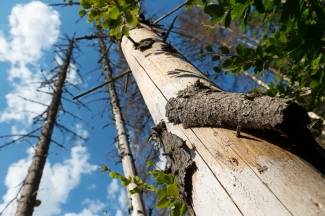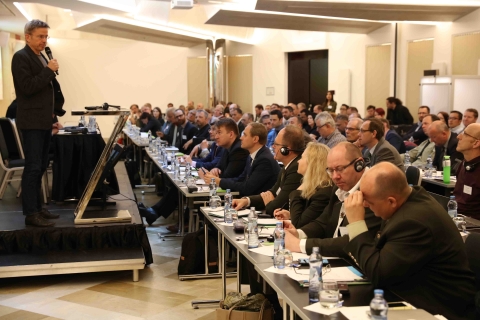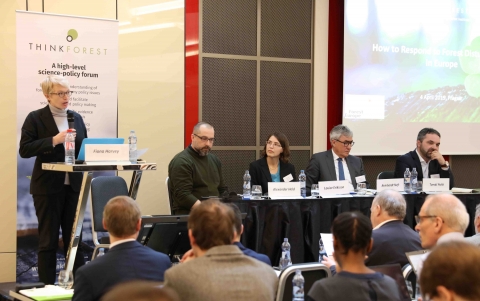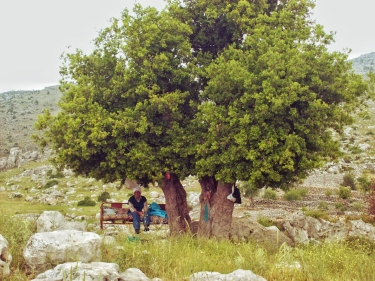International cooperation needed to deal with forest disturbances

International collaboration to connect and share science-based knowledge is needed to handle forest disturbances such as bark beetles, storms and fires.
This was the main message of the ThinkForest event on “How to respond to Forest Disturbances in Europe”, which was held in Prague on 4 April. Forest disturbances transcend national boundaries and strategies in response should too transcend them.
Natural disturbances have increased in Europe in the last 40 years, amplified by climate change and the changes humans have made in forest structure and composition over time. Participants heard from Prof. Stefan Rahmstorf from the Potsdam Institute for Climate Impact Research about the future climate trends at a global level. Global warming is unequivocal and ongoing, and stopping at well below 2 degrees C is a race against time, he said.
Prof. Rupert Seidl from BOKU, Vienna explained how climate change is expected to contribute to a further increase in forest disturbances in future, at an estimated rate of increase of +1 Mill. m³ per year. They will also take place in areas which have not previously been affected. We need to learn to live with disturbances, he said, and see them as an opportunity to change and adapt.
Prof. Tomáš Hlásny, Czech University of Life Sciences, shared the conclusions of the new EFI From Science to Policy study, Living with bark beetles: impacts, outlooks and management options. He emphasised the need for international cooperation, data sharing and monitoring, as well as taking a holistic approach to disturbance management at a landscape scale, balancing between risk reduction approaches and fostering forest resilience.
Lively panel discussions and questions from the audience emphasised that a holistic, joint approach was needed. We need to include the social dimension in the process, and maintain continuous dialogue with the public and stakeholders. However, to do so we will need a narrative. Panel chair Fiona Harvey, Environment Correspondent from The Guardian pointed out that media ignore forests most of the time, so when a disturbance happens, journalists are rather unprepared. As forest disturbances become more frequent, we need to educate the public and educate the media too.
The afternoon session shifted perspective, to highlight practical discussions of what has and hasn’t worked when dealing with disturbances in different regions of Europe. Speakers again emphasised the benefits they had experienced from transnational exchange of knowledge and sharing of previous experiences.
More information
The ThinkForest seminar, How to Respond to Forest Disturbances in Europe was held at the Hotel Grandium, Prague on 4 April. It was organized in cooperation with the ThinkForest forum and Forest Europe – Ministerial Conference on Protection of Forests in Europe
From Science to Policy 8: Living with bark beetles – impacts, outlook and management options was published by the European Forest Institute on 4 April. Download the full study
Further information: Lauri Hetemäki, Assistant Director, European Forest Institute, e-mail: lauri.hetemaki @ efi.int or phone: +358 (0)10 773 4316
Photos: Ondrej Hajek




